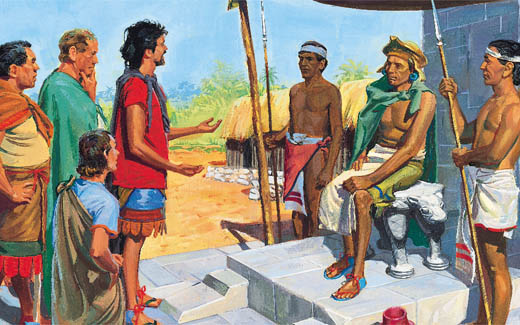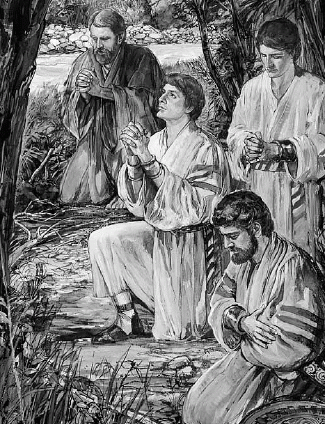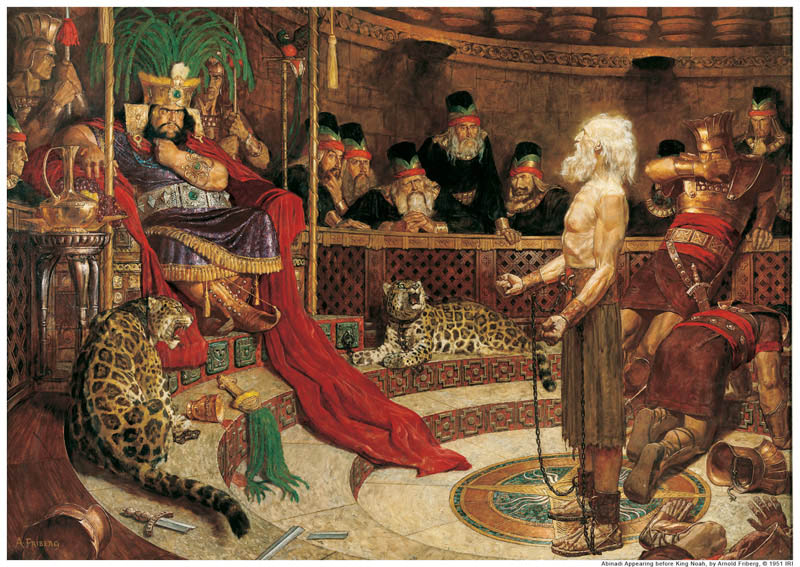By Jan
Zeniff 200-187 BC
The story of Zeniff in the Book of Mormon is filled with mystery, intrigue and faith. He was a peacemaker, a man of integrity who attempted to negotiate rather than use force. He learned from his mistakes and became wise in his judgments. For example, after his people suffered affliction, he recognized that they had been “slow to remember the Lord our God” and was faithful from that time forward. He not only fought battles alongside his people, he also helped to bury the dead of both sides. After he was deceived, he became wise and protective, safeguarding his people by continually preparing for an enemy attack.
 Zeniff is first mentioned in Mosiah 7:9, but his record does not begin until Mosiah 9. He explained that he had knowledge of the land of Nephi–the land of “first inheritance”–and knew the language of all of the Nephites. As a soldier, he spied on the Lamanite force to find out how they could be defeated, but he discovered “what was good” in the land and the Lamanite culture and desired that it should not be destroyed.
Zeniff is first mentioned in Mosiah 7:9, but his record does not begin until Mosiah 9. He explained that he had knowledge of the land of Nephi–the land of “first inheritance”–and knew the language of all of the Nephites. As a soldier, he spied on the Lamanite force to find out how they could be defeated, but he discovered “what was good” in the land and the Lamanite culture and desired that it should not be destroyed.
When he returned to his expedition leader, an “an austere and a blood-thirsty man,” he suggested a treaty with the Lamanites. The leader responded by commanding that Zeniff be slain. He was rescued by the “shedding of much blood” in a great battle between these Nephites that destroyed most of the army. Those who survived returned to Zarahemla to tell the sorrowful news to the widows and children.
Despite this setback, Zeniff described himself as “over-zealous” to inherit the land of their fathers. He gathered a group of Nephites and journeyed into the wilderness, but they were soon besieged with many afflictions, because they were “slow” to remember the Lord. Eventually they camped in the area where the battle among the Nephites had been fought.
Together with four men, Zeniff, who had been appointed as king by his people, asked the Lamanite king, Laman, if they could peacefully settle in the land. The king not only agreed that they could take over the lands of Lehi-Nephi and Shilom, but he also made his own people leave the area to these returning Nephites.
The group of Nephites was industrious, repairing and rebuilding the city and producing crops for twelve years. But the deceitful king, whose own people were lazy and idolatrous, had intended from the start to overtake Zeniff’s people after they established a fruitful land. Seeing their strength, he became fearful that they could not be brought into bondage, so he stirred up his people to war.
Zeniff armed the Nephites with weapons, and they went to war with the Lamanites, trusting in God.
“Yea, in the strength of the Lord did we go forth to battle against the Lamanites; for I and my people did cry mightily to the Lord that he would deliver us out of the hands of our enemies, for we were awakened to a remembrance of the deliverance of our fathers.
And God did hear our cries and did answer our prayers; and we did go forth in his might; yea, we did go forth against the Lamanites, and in one day and a night we did slay three thousand and forty-three; we did slay them even until we had driven them out of our land.”
For twenty-two years there was an uneasy peace between the Nephites and Lamanites, but after King Laman died, his son stirred up his people in rebellion against the Nephites. Wisely, Zeniff had spies watching the Lamanites and was prepared for war. When conflict was inevitable, Zeniff hid the women and children in the wilderness and he and every man—young and old—fought, trusting in the Lord.
The Nephites defeated the Lamanites with a great slaughter and returned to prospering in their land. After a reign of close to forty years, Zeniff conferred his kingdom to his son Noah.
Sources:
Every Person in the Book of Mormon by Lynn F. Price
The Book of Mormon: Mosiah 9
Additional Resources:
Request a free copy of The Book of Mormon (Another Testament of Jesus Christ)
Find an LDS Meetinghouse near you
Read abot Noah in The Book of Mormon





Recent Comments